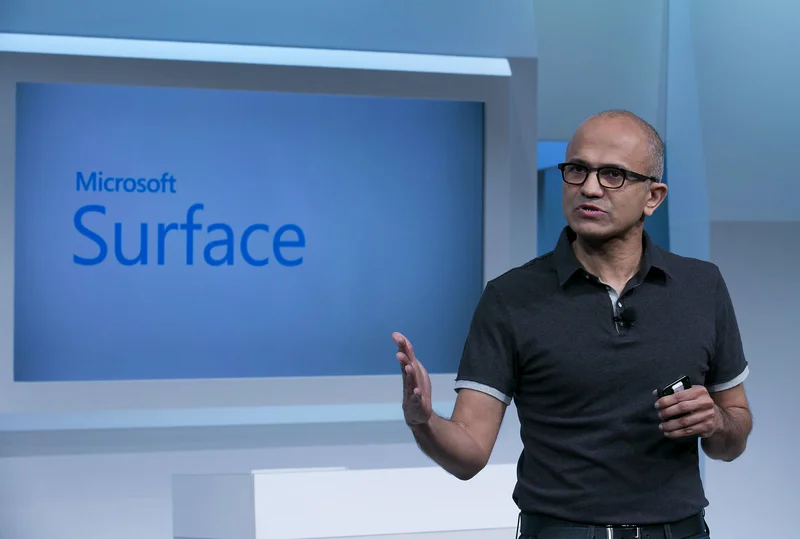The Numbers That Lie, and the Truth They're Hiding
It’s that time again. The digital confetti cannon of earnings season has gone off, and we’re all wading through the numbers, trying to make sense of the ticker symbols dancing across our screens. This week, the giants—Microsoft, Alphabet, Meta—all laid their cards on the table. And as usual, the market reacted with the twitchy, short-term anxiety of a day trader on their fifth espresso. The headlines screamed, the stocks wobbled, and for a moment, the entire narrative seemed to hinge on a few percentage points here or there.
But I want you to ignore that noise for a second. Let’s look past the knee-jerk reactions and focus on one specific data point that, on the surface, looks like a failure but is actually, I believe, the single most exciting signal of the future we’ve seen all year.
The headline that caught everyone’s eye was the news that Microsoft’s Xbox Console Sales Fall 29% as Gaming Content and Services Revenue Ticks Up. You can almost hear the collective gasp. A 29% drop! Pundits immediately started writing obituaries for the console era. But they are missing the point so profoundly it’s almost painful. Focusing on that number is like measuring the success of Netflix by the number of DVDs it mails out. It’s an obsolete metric for a world that has already moved on. The real story, the one that should have you sitting straight up in your chair, is hidden in the line right next to it: Xbox content and services revenue is up. The company as a whole didn’t just meet expectations; it blew past them, powered by what CEO Satya Nadella calls their “planet-scale cloud and AI factory.”
What we are witnessing isn’t the death of gaming. It’s the beautiful, messy, and exhilarating birth of its next form. It's the dematerialization of the experience—in simpler terms, the slow, deliberate unhitching of incredible digital worlds from the plastic boxes we used to need to access them.

The Ghost in the Machine is the New Product
For decades, our relationship with technology has been defined by the physical object. The PC on your desk, the phone in your pocket, the console under your TV. These were the gatekeepers. You bought the box to get the experience. Microsoft’s latest earnings report is the clearest evidence yet that this entire paradigm is dissolving. The box is becoming a suggestion, an optional entry point, not the main event.
This is the kind of breakthrough that reminds me why I got into this field in the first place. When I read Nadella’s letter to shareholders, it wasn't the $77.7 billion in revenue that made me pause; it was his focus on a "differentiated platform." That’s the key. Microsoft isn’t selling you a product anymore; it's inviting you into an ecosystem. Game Pass, its subscription service, is the real console now. It lives in the cloud, accessible from a dedicated machine, a laptop, a phone, or a smart TV. The hardware is just a temporary vessel for an experience that is becoming ambient, persistent, and universal.
This shift is a tectonic one, not unlike the transition from buying physical encyclopedias to having the entirety of human knowledge accessible through a search bar. We stopped needing the heavy, bound volumes on our shelves once the service—the internet itself—became powerful and accessible enough. The 29% drop in Xbox hardware isn't a sign of weakness, it’s a sign that the strategy is working. People are graduating from the physical object to the omnipresent service and the speed of this is just staggering—it means the gap between a world where you buy a thing and a world where you access an experience is closing faster than we can even comprehend.
Of course, this monumental shift comes with its own set of responsibilities. As our digital lives untether from physical devices and live permanently in these vast, intelligent clouds, who stewards that existence? What does ownership mean in a world of access? These are not small questions, and we have to start talking about them with the same excitement we reserve for the technology itself. But the potential here is just breathtaking. Imagine a world where your creativity, your work, your entertainment isn't limited by the processing power of the device in front of you, but is instead powered by a global, intelligent network. What could you build? What could you discover?
The Future Isn't a Box
So, let's step back from the frantic, second-by-second analysis of the stock market. The real story isn't about a quarterly dip in hardware sales. It's about the end of an era. We are at the very beginning of a transition away from device-centric computing and toward a future of ambient intelligence. The console isn't dying; it's transcending its physical form. It's becoming a ghost in the machine—a powerful, invisible service that’s everywhere at once. And that, my friends, is infinitely more exciting than selling another million plastic boxes.
